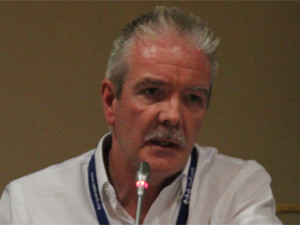
The days are long gone when developed companies could extend their return on investment by selling off their outdated technology at cut price in developing markets.
This is the stance of the Metro Ethernet Forum (MEF) - an industry alliance formed in a bid to accelerate the worldwide adoption of carrier-class Ethernet networks and services. "In today's connected global market, 'world-class' becomes common knowledge, and buyers are increasingly reluctant to settle for anything less."
MEF president Nan Chen recently tagged emerging markets as "[the forum's] most exciting growth area in the past year". Chen says the demand for MEF certification and membership is "taking off" as service providers seek to differentiate themselves against the competition, and businesses ask for the assurance of global service standards to protect their communications investment.
African leaders
In 2009, the World Bank announced: "Whether [broadband's] great potential to contribute to growth and competitiveness is realised will depend on whether governments understand the opportunity and ensure supportive conditions are in place through regulatory and policy reforms as well as strategic investments and public-private partnerships."
The MEF says this message has not gone unheeded. "Governments worldwide now recognise broadband connection as an essential utility - alongside water, sewage and electricity. ICT stimulus and broadband roll-out plans are regularly announced by emerging nations to boost the availability and affordability of new technologies and ultimately help the nation compete in the global economy."
And, says the MEF, international competition is heating up. "[There is] no room for complacency. In Africa, for example, it has long been assumed that SA would be the preferred investment destination for technology leaders. Microsoft, IBM, Intel, Motorola, Xerox, Hewlett-Packard and others saw it as the gateway to the African continent and built offices in SA.
"But only last year, IBM chose Kenya instead of SA for its first research laboratory in Africa, and Google chairman Eric Schmidt bypassed SA to focus on East Africa and West Africa when he visited the continent in January - saying Nairobi had emerged as a serious tech hub and could become the continent's technology leader."
New opportunities
Improving telecoms infrastructure, along with the fact that many regions are seeing government support in simplifying regulation, is opening up new business opportunities. Taking over-the-top (OTT) video as a case in point, Pyramid Research analyst Daniele Tricarico says, in emerging markets, the OTT model is enabling telcos, pay-TV providers and media companies to respond to the demand for video streaming services on multiple viewing platforms ? from laptops and mobile phones.
"Faced with saturated content markets in mature economies, global studios, aggregators and TV channels are looking for new markets to license their content."
The MEF says the way growth and opportunity is harnessed depends on a good communications infrastructure across the nation. "And that increasingly means Carrier Ethernet (CE) - the technology developed and promoted by the forum since 2003."
According to the MEF, more than half the world's wide area network traffic runs on Carrier Ethernet (as of 2012), and the proportion continues to rise as legacy technologies like ATM and frame relay are phased out.
"For emerging economies, where there is less telephone infrastructure already installed, this is especially true. CE 2.0 offers real flexibility to run across fibre, copper or wireless media, making it fitting for a nation wanting to leapfrog legacy technologies and establish a first-rate communications infrastructure."
Mobile telephony is hugely important in Africa, notes the forum. Mobile phones, it adds, far outstrip landline coverage, "and CE 2.0's backhaul support for 3G and 4G mobile data backhaul and telephony is vital for operators wanting to deliver high-performance connectivity in the face of increasing cost competition".
Just the start
MEF COO Kevin Vachon says the uptake the CE industry alliance has experienced is "just the beginning of a trend".
He says, while Western Europe, the Americas and Asia will continue to grow for the next decade or so and feed into a global CE market of $48 billion by 2015 (according to Vertical Systems), emerging markets are just beginning their journeys. "[These developing markets] have huge potential to uplift the global market even further."
In emerging nations, MEF membership and certification is seen both as a way to reassure local customers of the quality, scalability and extensibility of their services, and also as a means to attract business from global providers who want fast access to the emerging market.
Vachon concludes: "What we are witnessing is the start of the growth in Carrier Ethernet services as business and consumer growth for services and bandwidth plays out globally, and begins to impact on the service providers in emerging markets."
Share